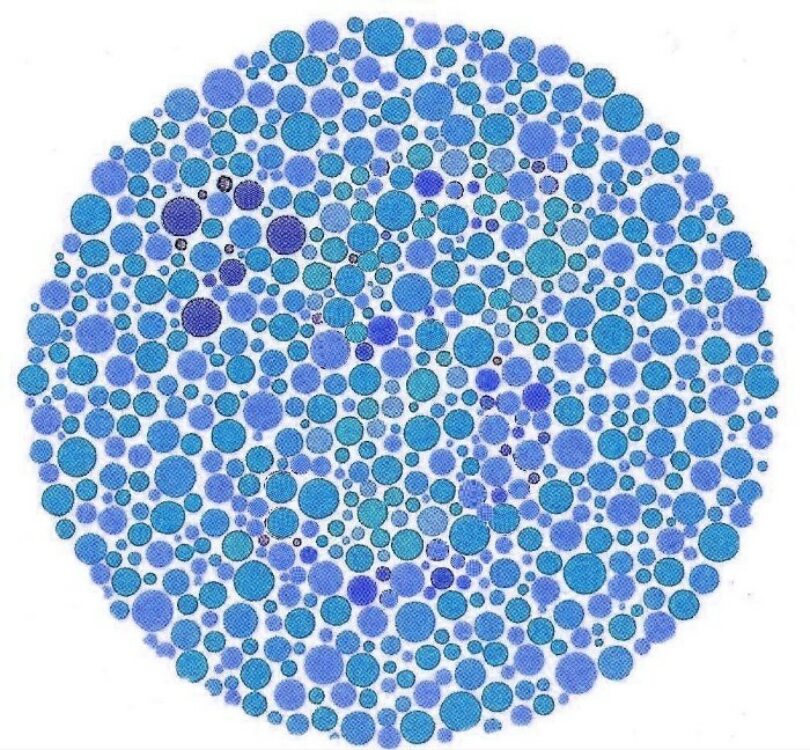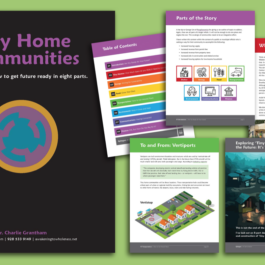What are the top 10 trends for the next ten years? Download the report here.

A few years ago, I was chatting with Bev who works at the CIA. (Okay, I don’t know if her name is really Bev but that’s what we call her. #spooks)
Bev is usually underwhelmed by the things I’m working on. I mean, she works at the CIA. But as we chatted, I mentioned that I wanted to do an exercise at Futurist Camp on The Future of Truth. Bev’s eyebrows raised.
“Oh,” she said, “if you did that at Camp, I’d send some of our folks.”
That’s how I started work on this topic. Thanks, Bev. Or whatever your name is.
Act 1. Capital-T Truth just is
Gravity is true. You don’t need to know the word “gravity” or its mathematical formulas* to understand it. From the time you learned to walk, you’ve had an experience: when you lose your balance, you fall. When you lose your grip on something, it drops. Gravity is true.
Cardinal directions — north, south, east, and west — are also Capital-T True. The sun rises from a particular place. Magnets obey their directions. Many cultures use cardinal directions to convey information. “There is a scorpion near your north foot,” they might say or “Raise your western hand.”

Act 2. Truth is subjective
In America we don’t give and follow cardinal directions. (Well, some people do, but stay with me.)
Try it: point to your north foot, or raise your western hand.
See? It’s not natural for us!
That’s because in America, we use ourselves as the origin point. When I tell you to “Turn left onto Washington Avenue”, you are the origin from which “left” takes its meaning. You turn to your left.
Another driver coming towards you makes a right hand turn onto Washington Avenue. Despite making “opposite” turns, you and the oncoming driver are now driving in the same direction onto Washington Avenue.
Still with me?
When we make ourselves the origin point, two things happen:
- We see ourselves as individuated from others (there is an “I” to which things happen, and that “I” is separate from “you”); and
- Truth becomes subjective, relative to the “I” to whom events happen.
Here’s another example.

Suppose you and I are sitting across from each other and I put a purple ball on the table between us. Objectively, we can agree that it is a ball and that it is purple.
Or is it?
If you have deuteranopoia, a type of color-blindness, the ball will not appear purple. It will be blue.
Who is right? What color is the ball?
There is a truth: a purple ball. But your subjective condition of color-blindness impedes our ability to agree on the truth.
To you, the ball appears blue.
To me, it appears purple.
Are we going to fight about it? Am I going to say, “Well, if you didn’t have a weird chromosome that messed up your vision, you’d see what I see?”
And would you respond, “Stop making this all about your ‘normalness.’ To me, that damn ball is blue!”
Now take an issue like global trade.
Is it good or bad?
It depends on many factors, and the subjective condition of the person interpreting the information will influence their perception of the truth about whether global trade is good or bad.
Act 3. The war on truth
When my brother Ron and I were little, we’d get into fights. It sounded something like this.
Me: Stop touching me.
Ron: You started it. (He was right.) And then he’d push me a little harder than I’d touched him.
Me: You’re hurting me! (I’d shove him back harder.)
Ron: Stop it! (He’d push me)
Together: MOMMMMMM!
If we as individuals can’t agree on “truth,” we need a Mom, someone who’ll settle the matter.
Michael Holder, former CIA Director identifies five institutions that are the Moms in many situations, the arbiters of truth, the organizations we (mostly) trust to do the right thing:
- Intelligence (CIA, FBI)
- Science
- Journalism
- Law/Justice
- Scholarship
And right now in America, there’s a war on nearly all of them.
As president, Trump has harshly criticized the FBI, the DOJ, the CIA, Congress, the courts and the “fake news” media, not to mention some of his own appointees (most of whom are no longer there). His detractors have said he’s been awfully harsh, considering he occupies the White House. But that’s his right.
— Howard Kurtz, Fox News.
Act 4. “Truth” is now belief
Have you heard of Laurie Anderson? I hadn’t until one night when I’d fallen asleep with my earbuds in. I woke up when she told this story.

Anderson, an American, was invited to direct a cultural festival in Athens. She was assigned a Greek tutor, the head archeologist of the Parthenon, regarded as an enduring symbol of Ancient Greece, Athenian democracy and Western civilization.
Anderson worked up the nerve to ask:
Why after all of this huge surge of energy, why aren’t we 1,000 times smarter than we are? Why didn’t we build on this?
His theory was that during this surge, people came to the Parthenon to bring offerings to Athena, goddess of War and Wisdom. Then it started getting more competitive, statues of Athena were popping up all over and becoming more realistic until the whole Parthenon started to look like an uncurated biannale.
Eventually people realized they couldn’t worship in an art museum, so they went back to the grove and caves and the places where the gods lived to worship, and left this high point of civilization behind.
Anderson’s conclusion:
The need to believe something supersedes the need to know something.
I feel this so deeply in America right now. My left-wing friends need to believe "the right" is evil. Their belief is their truth. My right-wing friends need to believe that "the left" is evil. Their belief is their truth.
Is the ball blue or purple? It’s whatever you believe it is.
Act 5: The future of truth will be more of the same
Because of the way “truth” is spread (Hello, Facebook), we’ll continue to sub “belief” for truth. So we’ll continue to get more politicized and more tribal (and not in a good, First Nations, way.)
There are too many channels, too few trusted arbiters, and we consumers are too lazy to do our mental gymnastics and figure out if what we’re reading is credible before sharing and liking.
Facebook is in no hurry to fix things. Facebook, Google, Twitter, Apple, and the other competitors in the Attention Economy are in a race to the bottom of your brainstem. It pays off (for them.)
And now that our elderly and out of touch Congress has its fingers on the social media trigger, it could get worse.
Dammit, I like to be optimistic. But in this case, I don’t see it.
What do you think about the future of truth?
* There are many equations for gravity
Thank you Joan Gilman for giving me a platform to share my thoughts on the Future of Truth with your broadcasters at the University of Wisconsin. And thank you Lauren, Tanya, and Brian, for our post-dinner discussion about this topic.
If you enjoyed this post, please subscribe to our newsletter.

Rebecca Ryan, APF
Rebecca Ryan captains the ship. Trained as a futurist and an economist, Rebecca helps clients see what's coming - as a keynote speaker, a Futures Lab facilitator, an author of books, blogs and articles, a client advisor, and the founder of Futurist Camp. Check out her blog or watch her Q&A on how NGC helps organizations prepare for the future using Strategic Foresight. Contact Lisa Loniello for more information.
Yasemin Arikan Promoted to Director of Futures Research
NEXT Generation Consulting (NGC) announced the promotion of Yasemin Arikan to Director of Futures Research. Arikan will lead the company’s efforts to...
Is Your Housing Market Ready for Your Future?
One of the biggest problems facing many cities and towns is inadequate housing. This problem is most acute for seniors, veterans with disabilities, and low-income groups ...
Three Things Martha Stewart Gets Right About Return to Office (RTO)
The original influencer and the person who invented the "Home" retail category, Martha Stewart, became the latest CEO to tell employees to get back to the office five day...







